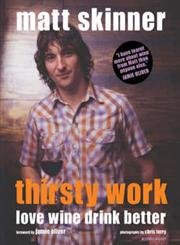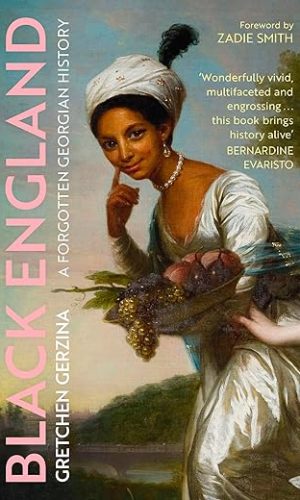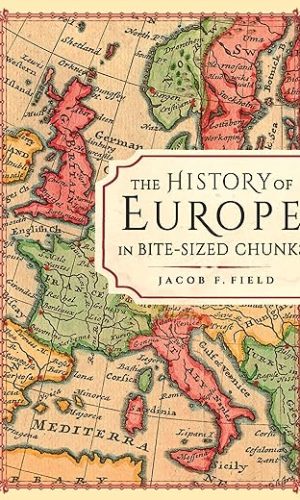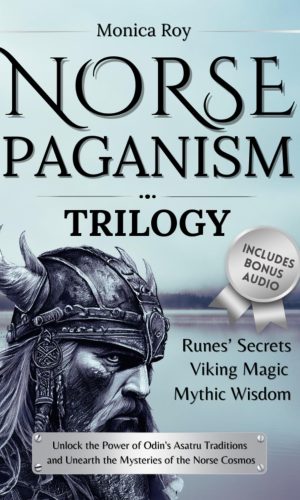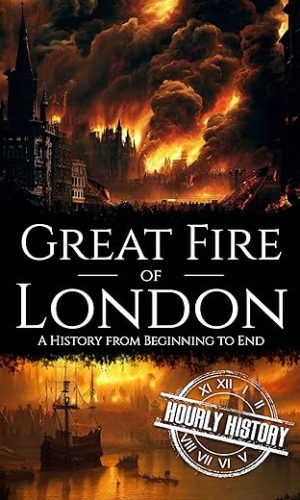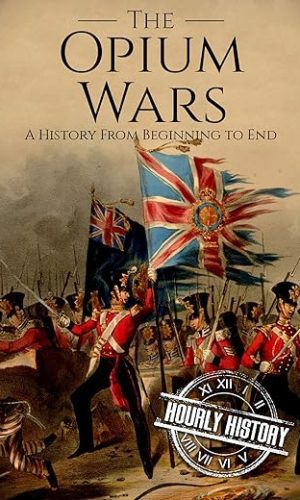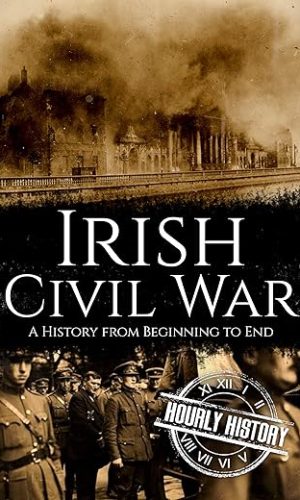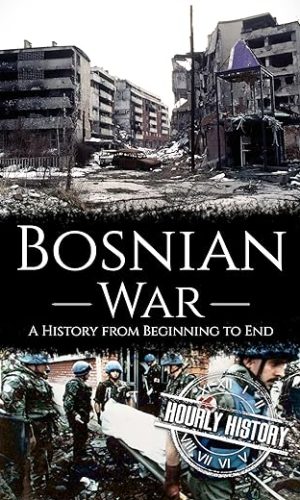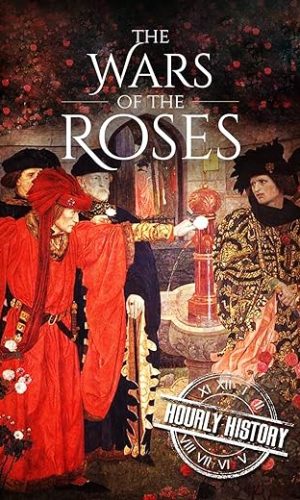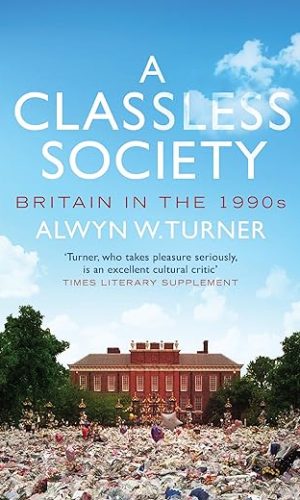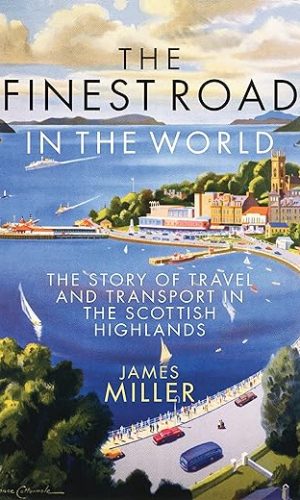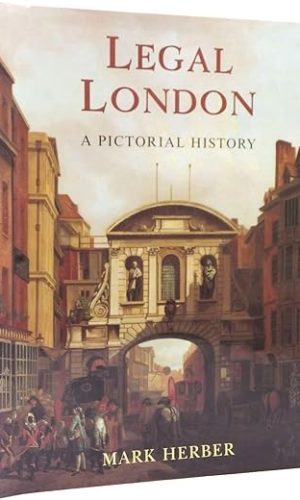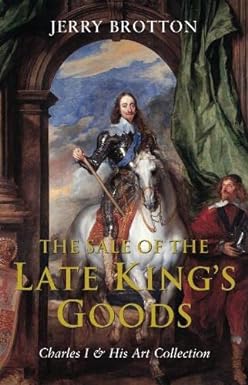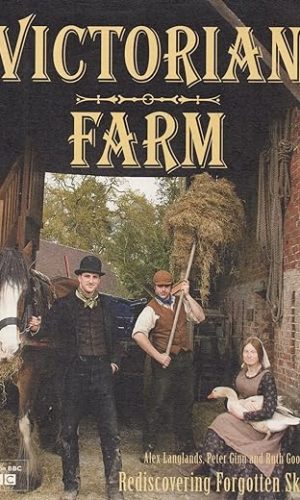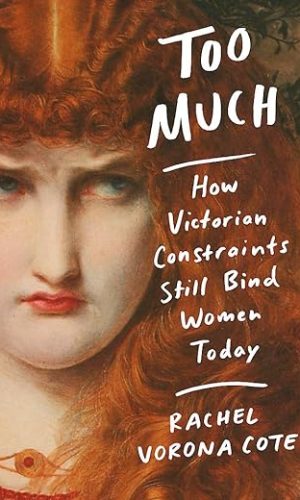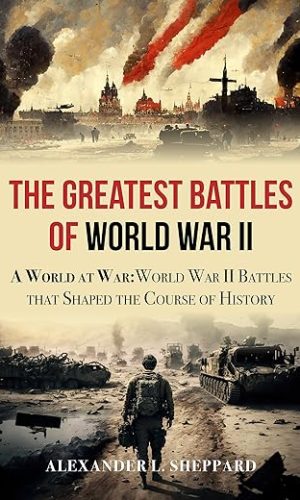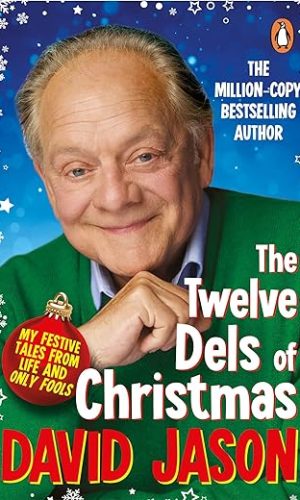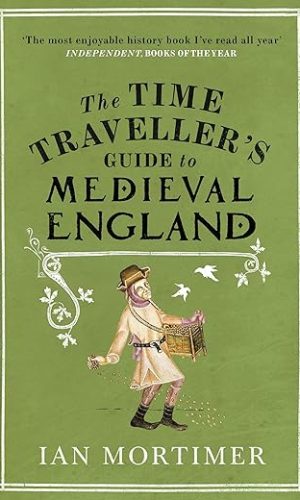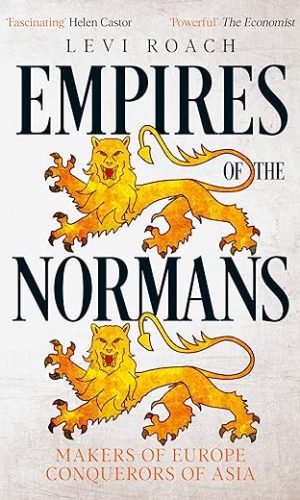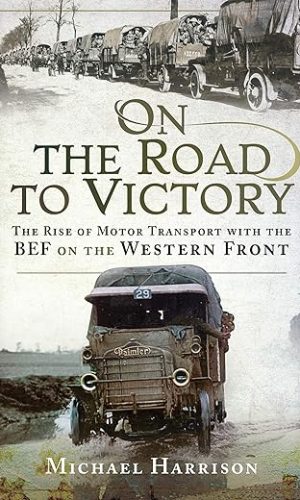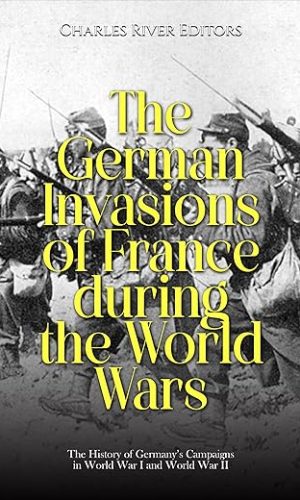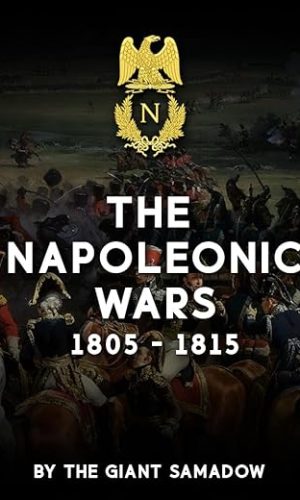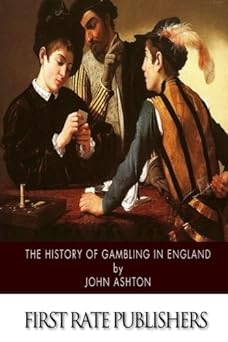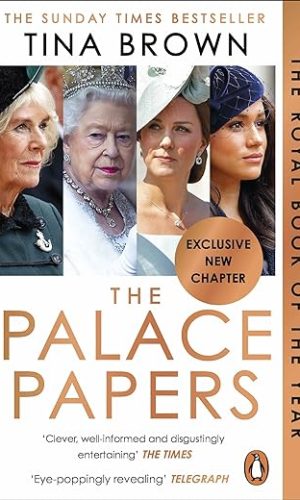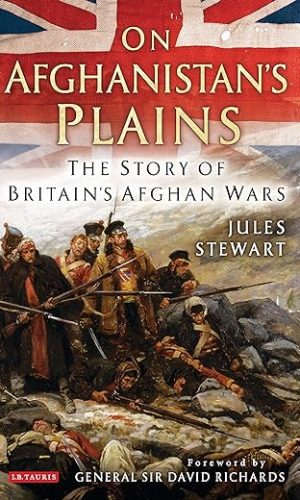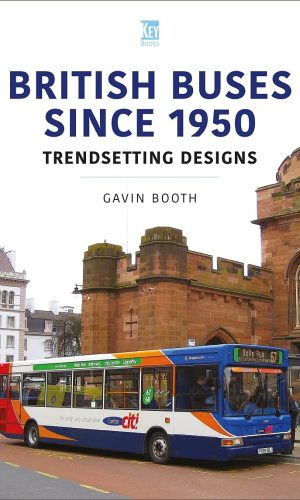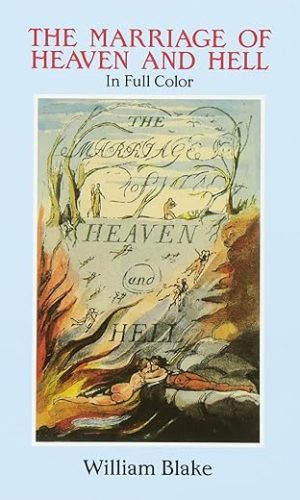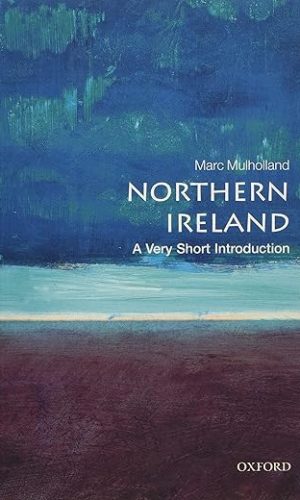Europe
-
Thirsty Work: Matt Skinner
Serious but unpretentious, inspiring and fun, Thirsty Work celebrates wine and all that goes into making it and all who are involved in sharing it. Based on the way he teaches the subject of wine to his students at Fifteen, Matt Skinner breaks down all the information you need to feel confident when choosing and drinking wine. All the key topics in wine are covered – from how to taste to the key grapes; where and how wine is made to the range of styles – and his 24 “hour faces of wine” working around the clock, feature all the people who are involved in bringing wine to your table. In everyday terms, Skinner presents his subject on a unique and personal level.Read more
£0.50 -
Black England: A Forgotten Georgian History
‘The classic book on Black people in Georgian London’ DAVID OLUSOGA
‘Deeply researched, lucidly written and utterly fascinating . . . If you ever thought Black British history started with Windrush, read this book’ GREG JENNER
Georgian England had a large and distinctive Black community. There were special churches, Black-only balls, many became famous and respected. But all, whether prosperous citizens or newly freed slaves, lived under the constant threat of kidnap and sale to plantations. Black England tells their stories, bringing their triumphs and tortures to vivid life, revealing a dramatic forgotten chapter of our shared past.
‘Black England taught me more history than I ever learned at school. Gretchen Gerzina tells it as it was, so we know how it is . . . a book that will be relevant for ever’ BENJAMIN ZEPHANIAH
Read more
£0.90 -
The History of Europe in Bite-sized Chunks
An accessible and succinct account of the story of Europe from its ancient foundations to the twenty-first century, The History of Europe in Bite-sized Chunks details the events, personalities, ideas and disasters that have shaped our continent.
The book is broken down into six easily digestible chapters: Classical Antiquity (2600 BCE to 600 CE); Medieval (600-1500); Reform and Enlightenment (1500-1780); Age of Revolutions (1780-1914); the Wars (1914-45); and the Making of Contemporary Europe (1945 to present). It begins with the first ancient culture to emerge in Europe: the Minoans. It then proceeds chronologically to the present day, taking in not just significant historical events but also overarching social, technological and cultural trends and their impact.
Throughout the book there are mini-biographies of notable individuals (such as Julius Caesar, Catherine the Great and Napoleon Bonaparte) who have been most significant in European history. It is also packed with amazing facts, details and maps that will give the reader a vivid understanding of Europe’s past
With the prospect of Brexit looming in Spring 2019, there is no better time to get a handle on European history!
Read more
£0.90 -
Norse Paganism Trilogy: Runes’ Secrets, Viking Magic, Mythic Wisdom. Unlock the Power of Odin’s Asatru Traditions and Unearth the Mysteries of the Norse Cosmos. (Mythology and…
???? EMBRACE THE MAGIC OF THE VIKINGS – Unlock the Secrets of Norse Paganism with an Exclusive Audio Bonus! ????
Are you ready to immerse yourself in the mystique of Norse culture, decode ancient runes, and become a modern-day Viking of the soul?
If you’ve ever been intrigued by the enigmatic world of the Vikings and their profound beliefs, this trilogy is your gateway to unlocking their captivating secrets.
Unlock the Entire Norse Universe within these three Books: One Epic Saga, Infinite Knowledge, Limitless Magic.
Book 1: “Norse Paganism for Beginners” ???? Explore Viking Magic ????
Prepare to be captivated by the mesmerizing world of Norse mythology. This book is more than just an introduction; it’s your portal to a realm where myths spring to life. Delve into the roots of Norse beliefs, explore the realms of mythical creatures, and unveil the mysteries of their magical practices. From totemic magic to the cosmic wonders of Norse cosmology, you’ll uncover treasures beyond imagination.
Book 2: “Norse Paganism” ???? Journey into the Heart of Viking Traditions ????
Enter the captivating tapestry of Norse paganism, where traditions and rituals come to life. Walk in the footsteps of ancient Vikings, experiencing their festivals, ceremonies, and spiritual awakenings. Through the pages of this book, you’ll gain profound insights into how Norse beliefs shaped their world. Crafted by expert Monica Roy, this essential guide invites you to embrace Norse spirituality and tap into its transformative power.
Book 3: “Norse Magic and Runes” ???? Unveil the Power of Odin’s Runes ????
Step into the realm of magic, where the power of runes and shamanic practices awaits your discovery. Unravel the mysteries of the Norse pantheon and decipher the Vikings’ sacred calendar. Deepen your connection with shamanism, cast runes with confidence, and explore the holidays and festivities that brought Norse mythology to life. This book empowers you to infuse the wisdom of runes and Norse magic into your modern life, awakening your inner Viking.
SPECIAL AUDIO BONUS: ????Norse Pantheon Ritual????
Enhance your exploration with a sacred Norse Pantheon Ritual. This exclusive audio bonus invites you to connect with the ancient deities, deepening your journey into Norse mythology and offering personalized divine guidance.
In this trilogy, you’ll:
Explore the rich tapestry of Norse mythology and trace its origins.
Unearth hidden treasures within Norse rituals, symbols, and beliefs.
Journey through the history and practice of Norse paganism.
Master the ancient arts of rune casting and shamanism.
Gain profound insights into the unique characteristics of the Asatru path.
This is more than a journey; it’s a transformation of spirit and mind. The wisdom of the Vikings awaits, and your adventure begins now. Immerse yourself in the mystique surrounding Norse paganism, and unlock the enduring legacy of the Vikings.
Begin Your Adventure
Whether you’re a seasoned seeker of spiritual truth or a curious explorer, the “Norse Paganism Trilogy” is your key to unlocking the extraordinary. It’s time to infuse your life with the power of ancient Norse wisdom.
Ready to Begin Your Epic Quest?
Click “Buy Now” to embark on an adventure that will leave you forever changed. Allow the magic of the Vikings to awaken your spirit and become a part of your mythic journey!
Read more
£0.90 -
Bloody Aachen: The First German City Ever Besieged by the U.S. Army (Americans Fighting to Free Europe)
A fascinating account of the first German city ever besieged by the U.S. Army and the monumental battle that took place amongst its ruined walls.This book would be perfect for readers of George Feifer, Stephen E. Ambrose, and James Holland.
Aachen saw some of the fiercest fighting of the Second World War. Through the determined defense of their city the citizens of Aachen held off the oncoming American forces for six weeks, giving the Nazis time to mobilize their troops for what would become the Battle of the Bulge. Had it not been for dogged resistance of these men and women the last great German offensive in the West might have never occurred, potentially ending the war in Europe could have ended six months and saving the lives of thousands.
Yet, Charles Whiting’s remarkable book, Bloody Aachen, is more than an account of a military operation. Through interviews with German and Dutch participants in the battle he builds an in-depth picture of who the defenders of the city were, informing us that many in this Catholic city were opposed to the Hitler regime and remained behind — against orders and against odds — determined to defend their homes, unwittingly aiding their Nazi enemies as they did so.
‘Whiting writes clear, hard-driving prose’ Kirkus Reviews
This book should be essential reading for all interested in this monumental siege which truly encapsulates the complex motives of the men and women who fought through the course of the Second World War.
Read more
£0.90 -
Great Fire of London: A History from Beginning to End
Discover the devastating history of the Great Fire of London…
Free BONUS Inside!In the summer of 1666, London was one of the largest cities in Europe, with close to half a million people living in its narrow, congested streets. Many of these people lived in houses packed closely together, lacking even basic facilities such as clean water and sewage disposal. The previous year, these unsanitary conditions had contributed to the worst outbreak of plague since the Black Death in 1348. Around 15% of the city’s population died as the deadly disease spread unchecked for almost twelve months. Finally, by the summer of 1666, the threat of plague seemed to be receding, and London slowly began to return to normal. But then, the city was threatened by another deadly hazard: fire.
London was a tinderbox waiting to ignite. Many of the city’s wooden buildings were sealed with flammable pitch, their upper stories jutting out and nearly meeting across the streets. An unusually hot and dry summer had drained the city’s water supplies, and without an organized firefighting force, its citizens were left to fend for themselves. The stage was set for catastrophe, and in the early hours of Sunday, September 2, 1666, the spark was struck. A seemingly inconsequential fire ignited in a baker’s shop on Pudding Lane. Unchecked and underestimated, it would grow to become one of the most devastating disasters London had ever faced.
Discover a plethora of topics such as
- London: A City at Risk
- September 2: Pudding Lane
- September 3: The Fire Spreads
- September 4: A Change of Wind
- September 5 & 6: The Fire Dies Down
- Rebuilding
- And much more!
So if you want a concise and informative book on the Great Fire of London, simply scroll up and click the “Buy now” button for instant access!
Read more
£1.90 -
A Victorian Workhouse – The Lives Of The Paupers: Mildenhall Suffolk (History of Mildenhall, Suffolk)
“It is obvious that Danny Pearson, author, has thoroughly researched the history of Mildenhall Workhouse, and has succeeded in writing a book that shines a light on part of Suffolk’s hidden past.
But, instead of being a tedious diary of chronological events, Danny has managed to bring history alive by looking into the lives of certain inmates, and how they did, or did not survive. Sometimes the writing is gory . . . But It’s real! This book is a highly readable account and an intriguing but sometimes gruesome chronicle of life during Victorian times in Suffolk.”Charlie Haylock, Voice Dialect Coach on “The Dig
“Pearson’s account of the lives of Mildenhall Workhouse residents has a well-structured narrative and conversational tone. Not just a chronicle of people and events, Pearson also injects a modern perspective and sense of humour into these stories. As a result, A Victorian Workhouse indirectly asks readers to consider how we can care for people today by laying bare the humanity of those who suffered through poverty in the Victoria era. This is an excellent and well-researched book for both casual readers and lovers of Victorian history.”
Devon Driver
100 Years on since the demolition of the grand Victorian mansion that was the Mildenhall Union Workhouse, this book tells the story of the “Paupers” unfortunate enough to have found themselves confined within it’s walls. The book takes you on a time travelling experience to meet former residents of this market town in rural Suffolk. Discovering grave robbery, disease, suicide, violence and misunderstood mental illness along the way. Discover their story.
Many individuals heartbreakingly fell into the poverty trap, created by the new poor law of 1834, desperate individuals who would never live outside the workhouse again. Any “Paupers” unfortunate enough to die within the workhouse, could find themselves sold to Cambridge University, their bodies used to train Medical students. Even in death the Paupers were owned by the workhouse. Read their story.
However there were inmates who walked proudly away from the institution and these stories can also be found in this book too. Such as the young Mildenhall lad, who had just a few years earlier walked the streets with his mum and sisters, dressed in rags without any food, toes poking out of his worn down shoes. This family tramped the streets looking for shelter on a freezing cold November evening. The same young man a decade later created a new life for himself, literally chasing away the Workhouse shadows in Sunny California, a real life Suffolk cowboy! Read his story.
Who ran the workhouse? Who were the Master and Matron of the Mildenhall Union? Who and what were the Board of Guardians? As well as the stories of the poor, this book reveals the lives of those tasked with caring for the poor. You will discover that the Master has some skeletons in his closet! Discover his story.
If you were to take a short stroll through Mildenhall you would soon discover many of the street names and buildings named after former wealthy residents. Names such as Hanmer, Bunbury, North, Aldrich, famous names not just in Mildenhall but throughout Britain. The poor walked the very same streets as theses famous families, leaving behind little evidence that they were ever here. These lives now carefully pieced back together through years of research using historical records and newspaper archives.
The poor were here too, read their story
Read more
£1.90 -
The Opium Wars: A History From Beginning to End (History of China)
Discover the remarkable history of the Opium Wars…
Free BONUS Inside!
Violent confrontation between armed groups over the supply of illegal narcotics is something we commonly associate with criminal gangs in modern cities, but in the mid-nineteenth century Great Britain went to war with Imperial China in order to continue to supply Chinese addicts with opium. The two wars which followed have become known as the Opium Wars, and they led to the utter defeat of China, the establishment of a British colony in Hong Kong, and the continuation of a narcotics trade that was worth millions of pounds each year to the British.
The Opium Wars exposed the weaknesses of the Chinese Qing dynasty in terms of its military abilities and internal corruption. They also exposed divisions in Victorian Britain where people were beginning to question the morality of going to war to support an illegal narcotics trade which caused misery and death for millions of Chinese. In the end, the British were able to overcome their reservations and prosecuted these two wars with great success. British casualties were small and the gains enormous—the British opium trade to China would continue for more than fifty years after the end of the Second Opium War.
For the Chinese Qing dynasty, the Opium Wars marked the beginning of the end. Imperial China had endured for two thousand years, but within fifty years of the humiliations of the Opium Wars, a revolution overthrew the imperial court and turned China into a republic. Although they are little remembered today, the Opium Wars changed the face not just of China but also of the whole of Asia. This is the story of those wars.
Discover a plethora of topics such as
- The Joy Plant
- Outbreak of the First Opium War
- British Superiority and the Devil Ship
- The Treaty of Nanking: First of the Unequal Treaties
- The Inevitable Second Opium War
- The Fall of Beijing
- And much more!
So if you want a concise and informative book on the Opium Wars, simply scroll up and click the “Buy now” button for instant access!
Read more
£1.90 -
Irish Civil War: A History from Beginning to End (History of Ireland)
Discover the remarkable history of the Irish Civil War…
Free BONUS Inside!
The Irish War of Independence which ended in July 1921 led directly to the agreement of the Anglo-Irish Treaty, an agreement that provided Ireland with a measure of independence. The Irish Free State was created, and Ireland was granted a level of autonomy it had not enjoyed for more than one hundred years.
However, the treaty contained a clause which was to divide Ireland, literally and politically. The six counties in the north which formed Ulster were allowed to opt-out and to remain a part of the United Kingdom. The island of Ireland became two separate countries for the first time—The Irish Free State in the south and west and Northern Ireland in the north. This division caused bitterness among many Irish people who had fought for independence. Some even viewed the signing of the treaty and the creation of a separate Northern Ireland as a betrayal of all they had fought for. Others accepted that the treaty was not perfect but saw the creation of the Free State as an important first step on the road to complete independence for Ireland.
In late June 1922, growing animosity between Pro and Anti-Treaty factions erupted into armed conflict in the center of Dublin. For the next ten months, the Irish Free State was wracked by a bitter, bloody, and brutal civil war between those who sought to protect the new government and those who wished to destroy it. This is the story of the Irish Civil War, its origins, and its consequences.
Discover a plethora of topics such as
- The War of Independence and the Anglo-Irish Treaty
- The Attack on the Four Courts
- Civil War Breaks Out
- The Deaths of Arthur Griffith and Michael Collins
- Executions and Assassinations
- The End of the Civil War
- And much more!
So if you want a concise and informative book on the Irish Civil War, simply scroll up and click the “Buy now” button for instant access!
Read more
£1.90 -
Bosnian War: A History from Beginning to End
Discover the tragic history of the Bosnian War…
Free BONUS Inside!In the annals of modern history, few episodes cast a darker shadow than the Bosnian War. It was during this war that the world became acquainted with the chilling term “ethnic cleansing,” a phrase that encapsulates the unspeakable acts of mass deportation, imprisonment, rape, and murder perpetrated against civilians based on their religious and ethnic identities. During the Bosnian War, the media bombarded the global audience with nightmarish images of brutal massacres, mass graves, and undeniable evidence of heinous crimes against humanity. Yet, for many observers, the roots and reasons behind this war remain enigmatic and elusive.
Yugoslavia was a nation deeply fractured by ethnic and religious divisions. The iron grip of Josip Broz Tito’s communist dictatorship, established after World War II, momentarily silenced these tensions, but upon Tito’s death and the subsequent disintegration of the communist regime in Yugoslavia, these dormant fissures erupted once more, giving rise to a period of anarchy, violence, and conflict known as the Yugoslav Wars. The Bosnian War was not a single, isolated conflict but rather formed part of this wider series of wars. To unravel the complexities of the Bosnian War, one must delve into the intricate web of connections with these other conflicts and the fragmentation of Yugoslavia itself. Even then, it is essential to recognize that the root causes of this war still linger.
This is the story of the complex, horrifying, and brutal human tragedy that became known as the Bosnian War.
Discover a plethora of topics such as
- World War II: The Creation of Socialist Yugoslavia
- Rise of Nationalism in Yugoslavia
- Violence Begins
- Bosnian Genocide: Ethnic Cleansing
- Srebrenica Massacre
- International Intervention
- And much more!
So if you want a concise and informative book on the Bosnian War, simply scroll up and click the “Buy now” button for instant access!
Read more
£1.90 -
Wars of the Roses: A History From Beginning to End (Medieval History)
Wars of the Roses
* * *Download for FREE on Kindle Unlimited + Free BONUS Inside!* * *
Read On Your Computer, MAC, Smartphone, Kindle Reader, iPad, or Tablet.
The Wars of the Roses were a series of civil wars in England fought between the House of Lancaster and the House of York between 1455 and 1485. Over a thirty-year period, England had five rulers, three of whom were killed or executed. Power changed hands on even more occasions as an ineffective king, Henry VI, was subject to mental breakdowns and protectors of the realm were regularly appointed to rule during these episodes, thereby disaffecting Henry’s ambitious queen, Margaret of Anjou. Though the battles fought were limited in scope, one of these, the Battle of Towton, is considered the bloodiest battle ever fought on English soil. The nearby river was described as running red with the blood of some 38,000 soldiers who lost their lives that day.
Inside you will read about…
✓ Prelude to War: A House Divided
✓ A Mad Monarch and His Quarrelsome Relatives
✓ The Ultimate Family Feud
✓ The Final Battle
✓ The Tudor Dynasty
And much more!By the end of the Wars, a new dynasty—the Tudor Dynasty—was born, the powers of the nobility were significantly diminished, and the system of feudalism was all but eradicated. The monarchy was strengthened, and the royal line of succession was secured for the Tudor line. As family feuds go, the Wars of the Roses were historically significant in changing the trajectory of power in England. This book tells the compelling story of this tumultuous period in English history in succinct, yet informative detail that is both educational and entertaining.
Read more
£1.90 -
A Classless Society: Britain in the 1990s
“Superb” NICK COHEN, author of What’s Left?
“Tremendously entertaining” DOMINIC SANDBROOK, Sunday Times
“Like his previous histories of the Seventies and Eighties, A Classless Society is an extraordinarily comprehensive work. Turner writes brilliantly, creating a compelling narrative of the decade, weaving contrasting elements together with a natural storyteller’s aplomb… engaging and unique” IRVINE WELSH, Daily Telegraph
“Ravenously inquisitive, darkly comical and coolly undeceived… Turner is a master of the telling detail” CRAIG BROWN, Mail on Sunday
When Margaret Thatcher was ousted from Downing Street in November 1990 after eleven years of bitter social and economic conflict, many hoped that the decade to come would be more ‘caring’; others hoped that the more radical policies of her revolution might even be overturned. Across politics and culture there was an apparent yearning for something the Iron Lady had famously dismissed: society.
The ‘New Britain’ to emerge would be a contradiction: economically unequal but culturally classless. Whilst Westminster agonised over sleaze and the ERM, the country outside became the playground of the Ladette. It was also a period that would see old moral certainties swept aside, and once venerable institutions descend into farce – followed, in the case of the Royal Family, by tragedy.
Opening with a war in the Gulf and ending with the attacks of 11 September 2001, A Classless Society goes in search of the decade when modern Britain came of age. What it finds is a nation anxiously grappling with new technologies, tentatively embracing new lifestyles, and, above all, forging a new sense of what it means to be British.
“Deserves to become a classic” EDWINA CURRIE
“Rich and encyclopaedic” ROGER LEWIS, Daily Mail
“Excellent” D.J. TAYLOR, Independent
Read more
£2.20 -
Private Life in Britain’s Stately Homes: Masters and Servants in the Golden Age (Brief Histories)
The Victorian and Edwardian eras in the run-up to 1914 marked the golden age of the English country house, when opulence and formality attained a level that would never be matched again. The ease of these perfect settings for flirtation and relaxation was maintained by a large and well-trained staff of servants. Although those ‘in service’ worked very long hours and had little personal freedom, many were proud of their positions and grateful for the relative security these gave. Indeed, the strictly hierarchical world below stairs could be more snobbish than that of a house’s owners. Michael Paterson skilfully and entertainingly explores the myths and realities of this vanished world, both upstairs and down.Read more
£2.80 -
The Long War for Britannia 367–664: Arthur and the History of Post-Roman Britain
This history of early medieval Britain sheds light on the real King Arthur and settles longstanding historical misconceptions about the period.
The Long War for Britannia examines some two centuries of ‘lost’ British history, while providing decisive proof that the early records of the time are far more reliable than many scholars believe. Historian Edwin Pace also demonstrates that King Arthur and Uther Pendragon are the very opposite of medieval fantasy—even if different British regions had very different memories of these post-Roman British rulers.
Some remembered Arthur as the ‘Proud Tyrant’, a monarch who plunged the island into civil war. Others recalled him as the British general who saved Britain when all seemed lost. The deeds of Uther Pendragon replicate the victories of the dread Mercian king Penda. Pace demonstrates how these authentic—yet radically different—narratives have distorted the historical record in way that persist today.
Read more
£2.80 -
The Finest Road in the World: The Story of Travel and Transport in the Scottish Highlands
Trains and stagecoaches stuck in the snow, wild storms driving sailing ships off course, traffic pile-ups on so-called ‘killer’ highways – stories abound about the horrors of travel in the Highlands and Islands, and have done for as far as the records go back.
James Miller tells the dramatic and sometimes surprisingly humorous story of travel and transport in the Highlands. Some of the figures in the story are familiar – General George Wade, Thomas Telford and Joseph Mitchell among them – but there are a host of others too, including the intrepid Lady Sarah Murray, who offered sound advice for travellers (‘Provide yourself with a strong roomy carriage, and have the springs well corded’).
This thought-provoking book will appeal to all who like stories of travel and transport, and are interested in how changing modes of transport have affected the ways of life in the Highlands and remain crucial to the modern life and the future of the region.
Read more
£2.90 -
Slavery in East Asia (Elements in the Global Middle Ages)
In premodern China, Korea, Japan, and Vietnam, just as in the far less culturally cohesive countries composing the West of the Middle Ages, enslavement was an assumed condition of servitude warranting little examination, as the power and profits it afforded to the slaver made it a convention pursued unreflectively. Slavery in medieval East Asia shared with the West the commonplace assumption that nearly all humans were potential chattel, that once they had become owned beings, they could then be either sold or inherited. Yet, despite being representative of perhaps the most universalizable human practice of that age, slavery in medieval East Asia was also endowed with its own distinctive traits and traditions. Our awareness of these features of distinction contributes immeasurably to a more nuanced understanding of slavery as the ubiquitous and openly practiced institution that it once was and the now illicit and surreptitious one that it intractably remains.Read more
£3.00£16.20 -
Legal London: A Pictorial History
London has been home to more lawyers, for more centuries, than any other city on earth. Paris ran it neck-and-neck until the 18th century, after which London romped away as the national and then imperial capital of a legal system with centralized Royal Courts of Justice, Inns of Court, Courts of Appeal, debtors prisons, the Old Bailey, the Archbishop’s Court at St Mary le Bow, the Bridewell, the notorious Fleet Prison, and the Metropolitan Police. No other city so celebrates, in surviving buildings and institutions, the work of judges, lawyers, litigants, criminals, and the police! This new book does justice to them all. Covering both civil and criminal aspects of the law, the author’s narrative account is enormously expanded by 200 photographs and engravings, each fully captioned; plus maps to show the location of the courts, Inns, prisons, and other places of punishment throughout the metropolis. This fascinating study of the law at work in days gone by is both entertaining and informative. Though of particular value to everyone interested in London history, it will appeal to members of the legal and law enforcement professions everywhere that the “English” system and tradition has left its mark.Read more
£3.20 -
The Sale of the Late King’s Goods: Charles I and his Art Collection
`So wonderful and glorious a collection, that the like will never again be met with.’ This is how one awed and wistful observer described King Charles’ artworks. As an acquirer of paintings by Europe’s great masters and patron of Rubens and Van Dyck, Charles’s extravagance in amassing his collection only exacerbated the parliamentary disapproval that led to civil war and the King’s own execution. After his death, one of the Commonwealth’s first decrees was to sell off his treasures to raise money for the new regime. After the Restoration, one of Charles II’s first resolutions was to get the collection back.
Jerry Brotton tells the remarkable story of the king and his pictures: their acquisition, dispersal and eventual recovery. He reveals a world in which diplomats doubled as art dealers, and in which the king’s plumber could be temporary owner of Bassano’s The Flood. This is a vivid portrait of a tragic king and his decadent court, set against the backdrop of political conflict and civil war, which also offers a new and compelling perspective on art and the evolution of collecting in England.
Read more
£3.20 -
Britain’s Most Eccentric Sports
Britain is a nation of good sports – literally, it turns out, given our country’s wonderful array of eccentric and bizarrely inventive pastimes. Yes, we know New Zealand are good at rugby, Brazil at football, while Australia and South Africa were countries specifically created for people who take sport far too seriously, but have those sporty nations ever produced a World Champion Pie Eater (OK, Shane Warne notwithstanding)? Has Brazil provided a F1 Pram Racing world champ? Has an Aussie won the World Nettle Eating Championship? A New Zealander tossed his way to Haggis Hurling domination? I can’t hear you Johnny Foreigner, and I’m choosing to interpret your silence as a ‘no’. Because the truth is, ladies and gentlemen of this great, mighty and resilient sporting land we call both Britain and home, we have provided year after year, true world champions in cheese rolling, competitive ploughing, medieval football re-enactment and pram racing. We may not have produced a Wimbledon Champion since the… er… the Wars of the Roses, but put down your Jules Rimet trophy Brazil, hand back your Rugby World Cup South Africa, and pick up your flonking stick – it’s time to learn about the sports that really matter.
Read more
£3.40 -
Victorian Farm
No electricity, no gas, no flushing toilet … and no tractor! Could you survive a year on a Victorian farm? In this fascinating time-travelling experiment Lion Television, with the BBC, follow a team of historians who will spend a year recreating farm life in 1885. Accompanying the series, this book follows the team as they try to run a farm using only materials and resources that would have been available to them in the Victorian era.This was a crucial period in the history of Britain – rapid industrialization had radically changed life in the cites but rural communities used a mixture of centuries-old and pioneering modern practices. Packed with informative text and photographs from the farm year, this book reveals exactly what the Victorians, ate, wore, how they managed their animals, farmed the land and organised their lives. In-depth features describe revolutionary advances in more detail, including new inventions, new breeding methods and advances in agricultural science. Practical projects allow you to join the historians in rediscovering Victorian crafts, cookery and homecare.
Providing a real insight into life on a Victorian farm, this series is also a fascinating reminder of how history comes full circle. The organic diet of 1885, use of natural products for cleaning and healthcare and interests in crafts and gardening are of increasing relevance today as we look for a more responsible way of living over 120 years later.
Read more
£3.60Victorian Farm
£3.60 -
Too Much: How Victorian Constraints Still Bind Women Today
Lacing cultural criticism, Victorian literature, and storytelling together, Too Much explores how culture corsets women’s bodies, souls, and sexualities – and how we might finally undo the strings.
Written in the tradition of Shrill, Dead Girls, Sex Object and other frank books about the female gaze, Too Much encourages women to reconsider the beauty of their excesses – emotional, physical, and spiritual.
Rachel Vorona Cote braids cultural criticism, theory, and storytelling together in her exploration of how culture grinds away our bodies, souls, and sexualities, forcing us into smaller lives than we desire. An erstwhile Victorian scholar, she sees many parallels between that era’s fixation on women’s ‘hysterical’ behavior and our modern policing of the same; in the space of her writing, you’re as likely to encounter Jane Eyre and Lizzie Bennet as you are Britney Spears and Lana Del Rey. This book will tell the story of how women, from then and now, have learned to draw power from their reservoirs of feeling, all that makes us ‘too much’.
Read more
£3.70£19.00 -
The Spanish Holocaust: Inquisition and Extermination in Twentieth-Century Spain
Selected as the Sunday Times History Book of the Year for 2012, this is a meticulous work of scholarship from the foremost historian of 20th-century Spain.
The culmination of more than a decade of research, ‘The Spanish Holocaust’ seeks to reflect the intense horrors visited upon Spain during its ferocious civil war, the consequences of which still reverberate bitterly today.
The brutal, murderous persecution of Spaniards between 1936 and 1945 is a truth that should have been told long ago. Paul Preston here offers the first comprehensive picture of what he terms “the Spanish Holocaust”: mass extra-judicial murder of some 200,000 victims, cursory military trials, torture, the systematic abuse of women and children, sweeping imprisonment, the horrors of exile. Those culpable for crimes committed on both sides of the Civil War are named; their victims identified.
‘The Spanish Holocaust’ illuminates one of the darkest, least-known eras of modern European history.
Read more
£3.70£12.30 -
The Greatest Battles of World War II: A World at War:World War II Battles that Shaped the Course of History
Harrowing stories of Auschwitz, Pearl Harbor, and D-Day continue to live on, but this unbridled look at The Greatest Battles of World War II explores the lesser-known monstrosities unlike other World War II books.
WWII did more than just change the fate of world history—in just six years, every corner of the globe became involved in some of the most violent crimes against humanity to ever occur.
From the Battle of Stalingrad to the Battle of Midway, each of the World War 2 battles directly influenced the trajectory of the war and the world as we know it.
The strength of every country’s military, intelligence, and political powers were put to the test in a war that gruesomely claimed an estimated 60 million lives, including casualties.
Whether you have a great fascination for history, or you’re just looking to uncover new facts, The Greatest Battles of World War II paints a picture of the key battles of World War 2 and the impact of each on the course of the war and future of global affairs.
Despite the relatively short war, there are mountains of heinous yet hugely impactful events that took place—battles to war crimes alike.
You may already know about the evils of concentration camps and terrible murders of innocent people. Now, it’s time to take a look at what the history books may not have taught you.
Inside The Greatest Battles of World War II, you will discover:
- every major event and battle from the invasion of Poland and Dunkirk to Operation Overlord and the fateful day of June 6, 1944, when Nazi efforts all came crashing down.
- the intricately planned military and intelligence efforts on the part of the US and its allies, which were key to the victory and end of the war.
- what the fate of the war might have been if these battles had gone differently, and how even the minutest details enabled the takedown of Hitler and the Nazi Party.
- how each and every event contributed to the drawn-out war, the eventual victory of the Allied Powers, and their far-reaching impact on the world, politics, and modern history.
…plus key facts of every battle and military move for a well-rounded WWII education without the distracting and unnecessary details.
The impact that World War II had on global military affairs, international politics, and national security is everlasting, and the battles of World War II played a crucial role in its influence.
If you’re ready to discover World War II with clear detail and unfiltered historical accuracy, then this book is written specifically for you.
Uncover the raw truth of The Greatest Battles of World War II and learn the full story!
Read more
£3.90 -
The Twelve Dels of Christmas: My Festive Tales from Life and Only Fools
“What a brilliant Christmas gift” Chris Moyles
“Like sitting down by the fire with [Sir David] and hearing your stories … Full of surprises” Lorraine Kelly
Think of this memoir as a Christmas special in book form, from someone who has been involved in a few of those and understands a bit about the concept. But a Christmas special very much like Only Fools and Horses, in the sense that the stories will be always heading outwards, ranging far and wide and well beyond the traditional festive gags involving giblets left in turkeys.
As I sift through various festive-related episodes in my career, loosening the ribbons, parting the wrapping paper, I’ll be doing my best to reach any relevant conclusions about life, work and the meaning of it all that I can usefully pass on to you – baubles of wisdom if you like. Or certainly baubles. You’ll learn why I have the perfect face to play Scrooge. And if you’re lucky I’ll also share what it’s like to fly in a helicopter with my old mucker Tom Cruise. Merry Christmas, you plonkers.
Read more
£4.30£8.50 -
The Time Traveller’s Guide to Medieval England: A Handbook for Visitors to the Fourteenth Century (Ian Mortimer’s Time Traveller’s Guides)
Discover an original, entertaining and illuminating guide to a completely different world: England in the Middle Ages.
Imagine you could travel back to the fourteenth century. What would you see, and hear, and smell? Where would you stay? What are you going to eat? And how are you going to test to see if you are going down with the plague?
In The Time Traveller’s Guide Ian Mortimer’s radical new approach turns our entire understanding of history upside down. History is not just something to be studied; it is also something to be lived, whether that’s the life of a peasant or a lord. The result is perhaps the most astonishing history book you are ever likely to read; as revolutionary as it is informative, as entertaining as it is startling.
‘Ian Mortimer is the most remarkable medieval historian of our time’ The Times
‘After The Canterbury Tales this has to be the most entertaining book ever written about the middle ages’ Guardian
Read more
£4.70 -
A Short History of England: Simon Jenkins
From the invaders of the dark ages to the aftermath of the coalition, one of Britain’s most respected journalists, Simon Jenkins, weaves together a strong narrative with all the most important and interesting dates in a book that characteristically is as stylish as it is authoritative.
A Short History of England sheds light on all the key individuals and events, bringing them together in an enlightening and engaging account of the country’s birth, rise to global prominence and then partial eclipse.There have been long synoptic histories of England but until now there has been no standard short work covering all significant events, themes and individuals.
Now updated to take in the rapid progress of recent events and beautifully illustrated, this magisterial history will be the standard work for years to come.
Read more
£4.70£9.50A Short History of England: Simon Jenkins
£4.70£9.50 -
Empires of the Normans: Makers of Europe, Conquerors of Asia
‘Powerful’ The Economist
‘Fascinating, panoramic . . . Roach brings an expert eye and page-turning energy’ Helen Castor, bestselling author of She Wolves
‘Narrated with pace, clarity, authority and style, Roach’s book is a bracing tour of the world that the Normans made their own’ Thomas Williams, bestselling author of Viking Britain
‘A fresh retelling . . . written with enthusiasm and brio’ Marc Morris, bestselling author of The Anglo-Saxons
How did descendants of Viking marauders come to dominate Europe, the Mediterranean and the Middle East?
It is a tale of ambitious adventures and fierce freebooters, of fortunes made and fortunes lost. The Normans made their influence felt across all of western Europe and the Mediterranean, from the British Isles to North Africa, and Lisbon to the Holy Land. In Empires of the Normans we discover how they combined military might and political savvy with deeply held religious beliefs and a profound sense of their own destiny. For a century and a half, they remade Europe in their own image, and yet their heritage was quickly forgotten – until now.
Read more
£4.70 -
On the Road to Victory: The Rise of Motor Transport with the BEF on the Western Front
The story of a revolution in moving troops and supplies: “A rare gem that will fill a gap in your World War I library. Highly recommended.” —Indy Squadron DispatchThe Great War produced many innovations, in particular the spectacular development by the British and French armies of motor transport.
The age-old problem of moving soldiers and their supplies was no different in 1914 than it had been some 2,400 years ago, when the great Chinese military thinker Sun Tzu informed his readers that the further an army marched into enemy territory, the more the cost of transport increased, even to the point that more supplies were consumed by the transportation of men and their horses than was delivered to the troops.
Using many previously unpublished illustrations, including artists’ impressions, this book tells the story of the men and women who made motor transport work for the victorious British Army on the Western Front, so that in 1918, the humble lorry did indeed help propel the British Army forward on the road to victory.
Read more
£4.70 -
The German Invasions of France during the World Wars: The History of Germany’s Campaigns in World War I and World War II
World War I, also known in its time as the “Great War” or the “War to End all Wars”, was an unprecedented holocaust in terms of its sheer scale. Fought by men who hailed from all corners of the globe, it saw millions of soldiers do battle in brutal assaults of attrition which dragged on for months with little to no respite. Tens of millions of artillery shells and untold hundreds of millions of rifle and machine gun bullets were fired in a conflict that demonstrated man’s capacity to kill each other on a heretofore unprecedented scale, and as always, such a war brought about technological innovation at a rate that made the boom of the Industrial Revolution seem stagnant. The enduring image of World War I is of men stuck in muddy trenches, and of vast armies deadlocked in a fight neither could win. It was a war of barbed wire, poison gas, and horrific losses as officers led their troops on mass charges across No Man’s Land and into a hail of bullets.If trench warfare was an inevitability during the war, it is only because the events leading up to the First Battle of the Marne were quite different. The armies at the beginning of the war moved quickly through the land, but the First Battle of the Marne devolved into a bloody pitched battle that led to the construction of trenches after the Germans retreated, blocked in their pursuit of Paris. When the aftermath disintegrated into a war between trenches, some Germans thought they had the upper hand since they were occupying French territory, but with fewer soldiers than the combined Allied nations and fewer resources and supplies, it was possibly only a matter of time before they were ultimately defeated. The commander of the German armies, General Helmuth von Moltke, allegedly said to Kaiser Wilhelm II immediately after the First Battle of the Marne, “Your Majesty, we have lost the war.” Winston Churchill himself would later reference that anecdote, writing, “Whether General von Moltke actually said to the Emperor, ‘Majesty, we have lost the war,’ we do not know. We know anyhow that with a prescience greater in political than in military affairs, he wrote to his wife on the night of the 9th, ‘Things have not gone well. The fighting east of Paris has not gone in our favour, and we shall have to pay for the damage we have done.’”
One of the most famous people in the world came to tour the city of Paris for the first time on June 28, 1940. Over the next three hours, he rode through the city’s streets, stopping to tour L’Opéra Paris. He rode down the Champs-Élysées toward the Trocadero and the Eiffel Tower, where he had his picture taken. After passing through the Arc de Triomphe, he toured the Pantheon and old medieval churches, though he did not manage to see the Louvre or the Palace of Justice. Heading back to the airport, he told his staff, “It was the dream of my life to be permitted to see Paris. I cannot say how happy I am to have that dream fulfilled today.” Four years after his tour, Adolf Hitler would order the city’s garrison commander, General Dietrich von Choltitz, to destroy Paris, warning his subordinate that the city “must not fall into the enemy’s hand except lying in complete debris.”
Of course, Paris was not destroyed before the Allies liberated it, but it would take more than four years for them to wrest control of France from Nazi Germany after they took the country by storm in about a month in 1940. That said, it’s widely overlooked today given how history played out that as the power of Nazi Germany grew alarmingly during the 1930s, the French sought means to defend their territory against the rising menace of the Thousand-Year Reich. As architects of the most punitive measures in the Treaty of Versailles following World War I, France was a natural target for Teutonic retribution, so the Maginot Line, a series of interconnected strongpoints and fortifications running along much of France’s eastern border.
Read more
£4.70 -
The Napoleonic Wars (1805 – 1815)
The Napoleonic Wars (1805 – 1815) were an epoch of unprecedented upheaval and destruction that reshaped the landscape of the history of ancient France and the broader European continent. In this comprehensive book, we embark on a captivating journey through this tumultuous decade, offering a detailed exploration of the triumphs and tragedies that marked Napoleon Bonaparte’s reign as the self-crowned Emperor of the French.
From the brilliance of Napoleon’s early victories, including his masterpiece at Austerlitz in 1805 and the smashing of Prussia at Jena in 1806, to the catastrophic invasion of Russia in 1812 and the bloodiest day at Borodino, we traverse the peaks and valleys of his fortunes. This narrative takes us through the horrors of the French occupation of Spain and Portugal, the great struggles of 1813, and Napoleon’s doomed defense of Paris in 1814. Along this historical voyage, we encounter moments of military genius and fatal blunders that left an indelible mark on the history of ancient France.
The climax of this narrative occurs in 1815, where we bear witness to history’s most renowned generals meeting on the battlefield for the first and only time: Napoleon Bonaparte, Emperor of the French, and the Duke of Wellington. The epic and brutal Battle of Waterloo unfolds, ultimately determining the fate of Europe.
This book provides a comprehensive chronicle of the entire span of the Napoleonic Wars, from the zenith of Napoleon’s power in 1805 to his final defeat at Waterloo in 1815. It is a compelling journey through one of the most captivating and tumultuous periods in history, interwoven with the grand campaigns, dramatic battles, and the rise and fall of an extraordinary leader, all set against the backdrop of the history of ancient France.
Order your copy now!
Read more
£4.70 -
The History of Gambling in England
This is a history of different types of gambling over the centuries in England, from cards to horse races. From the intro: “Gaming is derived from the Saxon word Gamen, meaning joy, pleasure, sports, or gaming—and is so interpreted by Bailey, in his Dictionary of 1736; whilst Johnson gives Gamble—to play extravagantly for money, and this distinction is to be borne in mind in the perusal of this book; although the older term was in use until the invention of the later—as we see in Cotton’s Compleat Gamester (1674), in which he gives the following excellent definition of the word:—“Gaming is an enchanting witchery, gotten between Idleness and Avarice: an itching disease, that makes some scratch the head, whilst others, as if they were bitten by a Tarantula, are laughing themselves to death; or, lastly, it is a paralytical distemper, which, seizing the arm, the man cannot chuse but shake his elbow. It hath this ill property above all other Vices, that it renders a man incapable of prosecuting any serious action, and makes him always unsatisfied with his own condition; he is either lifted up to the top of mad joy with success, or plung’d to the bottom of despair by misfortune, always in extreams, always in a storm; this minute the Gamester’s countenance is so serene and calm, that one would think nothing could disturb it, and the next minute, so stormy and tempestuous that it threatens destruction to itself and others; and, as he is transported with joy when he wins, so, losing, is he tost upon the billows of a high swelling passion, till he hath lost sight, both of sense and reason.” Gambling, as distinguished from Gaming, or playing, I take to mean an indulgence in those games, or exercises, in which chance assumes a more important character; and my object is to draw attention to the fact, that the money motive increases, as chance predominates over skill. It is taken up as a quicker road to wealth than by pursuing honest industry, and everyone engaged in it, be it dabbling on the Stock Exchange, Betting on Horse Racing, or otherwise, hopes to win, for it is clear that if he knew he should lose, no fool would embark in it. The direct appropriation of other people’s property to one’s own use, is, undoubtedly, the more simple, but it has the disadvantage of being both vulgar and dangerous; so we either appropriate our neighbour’s goods, or he does ours, by gambling with him, for it is certain that if one gains, the other loses. The winner is not reverenced, and the loser is not pitied. But it is a disease that is most contagious, and if a man is known to have made a lucky coup, say, on the Stock Exchange, hundreds rush in to follow his example, as they would were a successful gold field discovered—the warning of those that perish by the way is unheeded.”Read more
£5.20 -
Zulu
Saul David’s Zulu: The Heroism and Tragedy of the Zulu War of 1879 is a fascinating look at the most controversial and brutal British imperial conflict of the nineteenth century.
The real story of the Anglo-Zulu war was one of deception, dishonour, incompetence and dereliction of duty by Lord Chelmsford who invaded Zululand without the knowledge of the British Government. But it did not go to plan and there were many political repercussions. Using new material from archives in Britain and South Africa, Saul David blows the lid on this most sordid of imperial wars and comes to a number of startling new conclusions.
‘Saul David’s brilliant and magisterial account must now be regarded as the definitive history of the Zulu War’ Frank McLynn, Literary Review
‘This meticulously detailed book…give[s] a fully rounded and judicious account of this dismal conflict Guardian
‘Fascinating, thrilling, convincing… reads like a novel’ Economist
Saul David is Professor of War Studies at the University of Buckingham and the author of several critically acclaimed history books, including The Indian Mutiny: 1857 (shortlisted for the Westminster Medal for Military Literature), Zulu: The Heroism and Tragedy of the Zulu War of 1879 (a Waterstone’s Military History Book of the Year) and, most recently, Victoria’s Wars: The Rise of Empire.
Read more
£5.40£12.30Zulu
£5.40£12.30 -
The Palace Papers: The Sunday Times bestseller
WITH AN EXCLUSIVE NEW CHAPTER FOR THE PAPERBACK EDITION
The Amazon No.1 Bestseller
The Sunday Times BestsellerTHE ROYAL BOOK OF THE YEAR
_________________________________‘Eye-poppingly revealing. . . impeccable sources, historical heft and canny insights served up with a zingy wit. There are many royal biographers, but few as good as this. She turns gossip into the first draft of history.’ TELEGRAPH
From the Queen’s stoic resolve to the crisis of Meghan and Harry. From the ascendance of Camilla and Kate to the downfall of Andrew. Full of remarkable inside access, The Palace Papers by Sunday Times bestselling author Tina Brown will change how you understand the Royal Family.
‘Clever, well-informed and disgustingly entertaining’ THE TIMES
‘There are royal books, and there are royal books. But The Palace Papers is in a genre of its own’ RADIO TIMES
‘Jaw dropping! What a book . . . if you ever want to feel like a fly on the wall of any of the palaces, this is it.’
LORRAINE KELLY‘Brown’s prose has the swoosh of an enjoyably OTT ballgown’ FINANCIAL TIMES
‘The world’s sharpish and best-informed royal expert’ PIERS MORGAN
‘Riveting and rigorous’ PANDORA SYKES
‘A witty, rip-roaring read . . . full off perceptive and witty observations’ i Newspaper
‘A rollicking ride through recent royal family history . . . Tina Brown’s sparkling prose and eye for detail enliven an entertaining exposé’ OBSERVER
‘The most explosive royal book of the year’ THE SUN
‘Gloriously irreverent, racily written and often very funny. The early chapters on the long affair between Prince Charles and Camilla read like a non-fiction version of Jilly Cooper’s Rutshire Chronicles’ NEW STATESMAN
‘A motherlode of delectable gossip . . . Brown has produced a work both scholarly and scandalous that makes us think about what the post-Elizabethan world may bring, alternately amusing and horrifying us along the way . . . vivid and richly-embroidered’ INDEPENDENT
‘The devil is in the delicious detail . . . Brown tackles her subjects with the same brio she brought to her years as a highly regarded magazine editor . . . Her access to those who flit around the royals gives her writing an edgy authenticity’ DAILY MAIL
‘Brown thrashes her way through absolutely everything that has happened to the family since the end of the last book in 1997 . . . Charles and Camilla are vividly brought to life in a series of well-researched stories and anecdotes’ SUNDAY TIMES
‘The Palace Papers is a sharp-nibbed observation of a generation of tumult for the House of Windsor, bookended by the deaths of Princess Diana and Prince Philip. It’s a story about media as much as monarchy, and it draws from almost every chapter in Brown’s career in journalism’ FINANCIAL TIMES
‘It’s hard to look away as Tina Brown delves into decades’ worth of royal scandals’ GUARDIAN
‘Utter brilliance . . . a rip-roaring read’ SCOTSMAN
‘A brilliant book. Tina Brown has inside knowledge and writes so well’ LADY ANNE GLENCONNER (author of Lady in Waiting)
_________________________________
‘Never again’, became Queen Elizabeth II’s mantra shortly after Diana’s death. More specifically, there could never be ‘another Diana’ – a member of the family whose global popularity upstaged, outshone, and posed an existential threat to the British monarchy. Picking up where The Diana Chronicles left off, The Palace Papers reveals how the royal family reinvented itself after the traumatic years when Diana’s blazing celebrity ripped through the House of Windsor like a comet.
Tina Brown takes readers on a tour de force journey that shows the Queen’s stoic resolve as she coped with the passing of Princess Margaret, the Queen Mother and her partner for seven decades, Prince Philip, and triumphed in her Jubilee years even as the family dramas raged around her. She explores Prince Charles’s determination to make Camilla his queen, the tension between William and Harry who are on ‘different paths’, the ascendance Kate Middleton, the disturbing allegations surrounding Prince Andrew and Jeffrey Epstein, and Harry and Meghan’s stunning decision to ‘step back’ as senior royals. Despite the fragile monarchy’s best efforts, ‘never again’ seems fast approaching.
Read more
£5.70£10.40The Palace Papers: The Sunday Times bestseller
£5.70£10.40 -
On Afghanistans Plains: The Story of Britains Afghan Wars
Britain’s military involvement in Afghanistan is a contentious subject, yet it is often forgotten that the current conflict is in fact the fourth in a string of such wars dating back more than 170 years. Aiming to protect British India from the expanding Russian empire, the British fought a series of conflicts on Afghan territory between 1838 and 1919. The Anglo-Afghan wars of the 19th and early 20th centuries were ill-conceived and led to some of the worst military disasters ever sustained by British forces in this part of the world, with poor strategy in the First Afghan War resulting in the annihilation of 16,000 soldiers and civilians in a single week. In his new book, Jules Stewart explores the potential danger of replaying Britain’s military catastrophes and considers what can be learnt from revisiting the story of these earlier Afghan wars.Read more
£5.70£11.40 -
British Buses Since 1950: Trendsetting Designs (Britain’s Buses Series)
Bus design has certainly evolved in the seven decades since 1950, but it has not been a steady process. Advances in bus design have caused manufacturers to rush back to the drawing board for fear of being left behind. In 1950, the first of the new breed of underfloor-engined single-deckers appeared, and, just six years later, came the first rear-engined double-decker. Buses got longer, and one result in the 1960s was a rash of new rear-engined single-deck models. Efforts to make buses accessible for all passengers led to low-floor models in the 1990s, and then, in the 2000s, concerns about the environment prompted diesel-electric hybrid, gas, electric and hydrogen buses. Covering the designs that led the way with varying degrees of success over the past 70 years, and illustrated with over 170 colour images and period advertisements, this book showcases the good, the bad and the ugly of British bus design.Read more
£6.20 -
Victorian London Scenes: Journey Through The Charming Victorian Of London Coloring Book For Adults
Immerse yourself in the charm and elegance of a bygone era with “Victorian London Scenes : Journey Through The Charming Victorian Of London Coloring Book For Adults,” an exquisitely crafted coloring book that transports you back to the enchanting world of 19th-century England. Step into the bustling streets of Victorian London and experience the rich history, architectural marvels, and bustling life of this iconic city.Each illustration takes you on a journey through time, showcasing iconic landmarks, bustling London Street, serene town, and the Victorian life. As you bring these scenes to life with your artistic touch, you’ll find yourself strolling along cobblestone streets lined with elegant townhouses, ornate lampposts, and majestic cathedrals. Immerse yourself in the vibrant energy of the city, as horse-drawn carriages pass by, and finely dressed ladies and gentlemen promenade through the city.
Whether you’re seeking relaxation, a trip through history, or a unique way to explore Victorian London, this coloring book will be your perfect companion. Allow your creativity to flourish and your imagination to wander as you embark on this delightful coloring journey through the enchanting streets of Victorian London. So, pick up your favorite coloring tools and immerse yourself in the romance and elegance of this extraordinary era. Let the enchanting world of “Victorian London Scenes” unfold before your eyes!
Read more
£6.20 -
The Marriage of Heaven and Hell: A Facsimile in Full Color (Dover Fine Art, History of Art)
This vivid facsimile of Blake’s romantic and revolutionary publication offers a concise expression of his essential wisdom and philosophy. His distinctive hand-lettered text is accompanied by 27 color plates of his stirring illustrations.Read more
£6.50£7.10 -
No Borders: Playing Rugby for Ireland (Behind the Jersey Series)
Winner of Cross Sports Rugby Book of the Year 2016
From Jack Kyle’s immortals to Brian O’Driscoll’s golden generation, this is the story of Irish rugby told in the players’ words. Celebrated rugby writer Tom English embarks on a pilgrimage through the four provinces to reveal the fascinating and illuminating story of playing test rugby in the emerald green of Ireland – all the glory of victory, all the pain of defeat, and all the craic behind the scenes. But this is more than just a nostalgic look back through the years, it is a searing portrait of the effects of politics and religion on Irish sport, a story of great schisms and volatile divisions, but also as story of the profound unity, passionate friendships and the bonds of a brotherhood. With exclusive new interview material with a host of Ireland rugby greats, No Borders unveils the compelling truth of what it means to play for Ireland at Lansdowne Road, Croke Park and around the world. This is the ultimate history of Irish rugby – told, definitively, by the men who have been there and done it.
Read more
£6.50 -
The Big Book of History Crosswords: 51 Themed Crossword Puzzles and Fun Facts for History Lovers
Think you know your history? This bumper collection of 51 fun, fiendish crossword puzzles will challenge your knowledge of everything from Ancient Rome to the Arab Spring, from the Aztecs to the internet, from the Stone Age to the Jazz Age, and from Timbuktu to outer space.
Spanning centuries and ranging across continents, each crossword has something for everyone – whether you’re a keen quizzer, fancy yourself as a history expert, or are just fascinated by our shared past. Test yourself on historic battles, ancient cultures, earth-shaking revolutions and amazing inventions; play against the clock, or just against yourself. Open up a whole world of historical discovery. Let’s get puzzling!
- Absorbing puzzles on a large 17×17 grid
- A wide variety of questions across 14 history themes
- Over 860 quiz-style clues
- Clues and crossword grid are conveniently on the same page for each puzzle
- Solutions provided at the back of the book
- Fun facts every 2 puzzles to teach you something interesting you didn’t know before!
- The perfect gift for adult history fans
- All puzzles are in British English
Get 19 FREE bonus crosswords with this book! As a thank you for purchasing this book, we are giving away 19 FREE crosswords in a printable format for you test your history knowledge on hundreds more clues. The download link is provided in the book.
Read more
£6.60 -
Northern Ireland: A Very Short Introduction (Very Short Introductions)
From the Plantation of Ulster in the seventeenth century to the entry into peace talks in the late twentieth century the Northern Irish people have been engaged in conflict – Catholic against Protestant, Republican against Unionist. The traumas of violence in the Northern Ireland Troubles have cast a long shadow. For many years, this appeared to be an intractable conflict with no pathway out. Mass mobilisations of people and dramatic political crises punctuated a seemingly endless succession of bloodshed. When in the 1990s and early 21st century, peace was painfully built, it brought together unlikely rivals, making Northern Ireland a model for conflict resolution internationally.But disagreement about the future of the province remains, and for the first time in decades one can now seriously speak of a democratic end to the Union between Northern Ireland and Great Britain as a foreseeable possibility. The Northern Ireland problem remains a fundamental issue as the United Kingdom recasts its relationship with Europe and the world. In this completely revised edition of his Very Short Introduction Marc Mulholland explores the pivotal moments in Northern Irish history – the rise of republicanism in the 1800s, Home Rule and the civil rights movement, the growth of Sinn Fein and the provisional IRA, and the DUP, before bringing the story up to date, drawing on newly available memoirs by paramilitary militants to offer previously unexplored perspectives, as well as recent work on Nothern Irish gender relations. Mulholland also includes a new chapter on the state of affairs in 21st Century Northern Ireland, considering the question of Irish unity in the light of both Brexit and the approaching anniversary of the 1921 partition, and drawing new lessons for the future.
ABOUT THE SERIES: The Very Short Introductions series from Oxford University Press contains hundreds of titles in almost every subject area. These pocket-sized books are the perfect way to get ahead in a new subject quickly. Our expert authors combine facts, analysis, perspective, new ideas, and enthusiasm to make interesting and challenging topics highly readable.
Read more
£7.10£8.50

